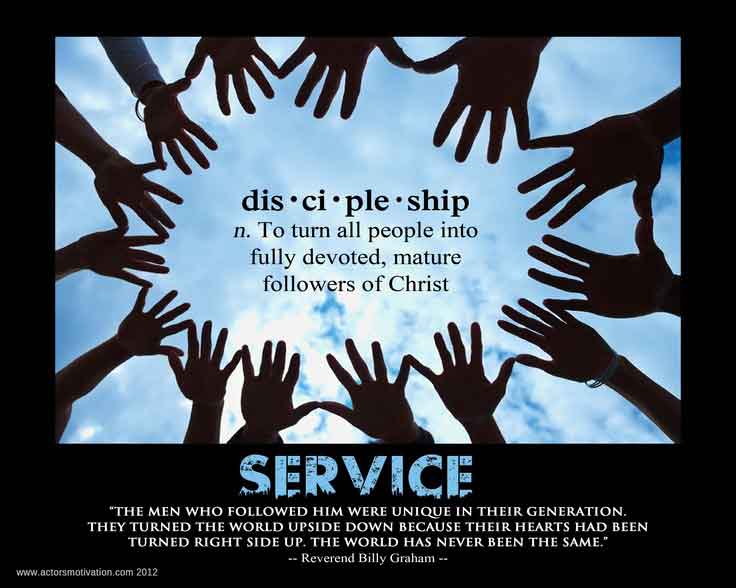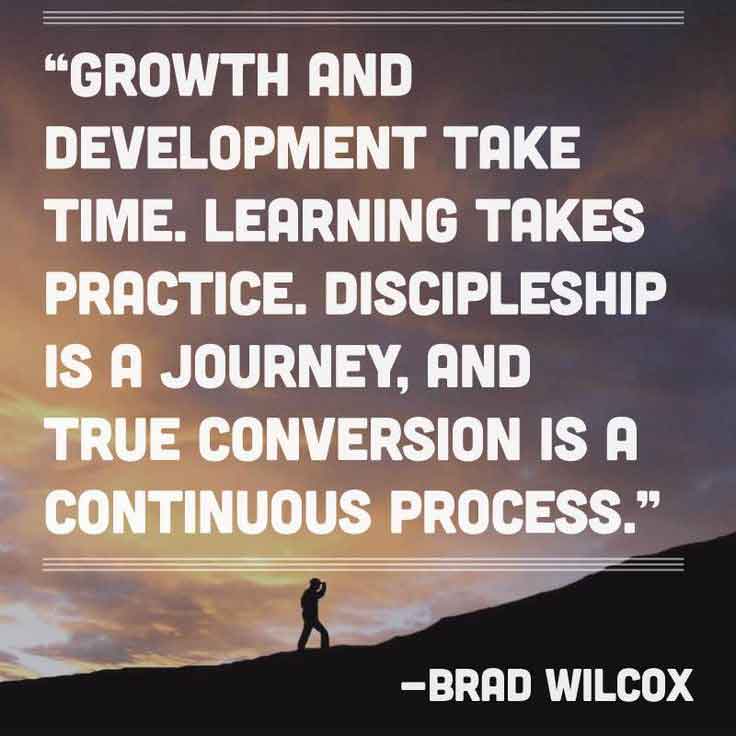God intended family since the beginning. God made Adam and saw that he was alone, and needed a helpmate. He made Eve. Then they had children, obeying the first command to multiply and fill the earth. (Gen 1:28) This rule of multiplication is currently the primary method how Islam is intending to conquer the world. They do not integrate, learn the language, abandon their traditions and clothing. Yet they are now residing over the world, and expanding through population growth percentage of 3.1 children per family against the 2.1 rate of Europe and America. See the following article on this subject: http://brie-hoffman.hubpages.com/hub/Muslim-World-how-muslims-will-take-over-the-world-via-population-growth Although this may be true, originally God’s intention is to cover the earth with His Glory, through godly and righteous families.
The first family serves as an example of the struggles of family too. When Adam’s children sacrificed to God, Abel’s sacrifice was approved but not Cain’s. He murdered his brother out of jealousy, anger and offense. (Gen 4:5-6) God’s answer to Cain is interesting: (v7) “If you do well, will you not be accepted? If you do not do well, sin crouches at your door, its desire is for you, but you must master it.” Cain’s heart was exposed by God rejection of his sacrifice. “Am I my brother’s keeper?” (Gen 4:9) God is not interested in our sacrifices, but our mercy, readiness to help those who are in trouble. (Mat 9:13 AMPLIFIED) Family is the primary breeding ground for offenses to happen, when we master it, we will be able to master life.
Multiplying was the easy part, how to multiply spiritually and have the children walk in the precepts of the parents seems to be the difficult part.
The way God’s family is constituted is through faith and obedience. God called Abraham from the Chaldeans living in Ur, to become His family. (Gen 12:1; Rom 4:5) Abraham is the father of faith. (Rom 3:30; 4:1-2; 4:16; Heb 6:15) His name Abraham – Means Father of many nations. Essensially the story of the birth of a nation, the God of Abraham, Isaac and Jacob is a family story.
A Spiritual Family – Birthed by Supernatural means
Sarah, Rachel, and Rebekka all was barren, and God had to miraculously open their womb to be able to bare children. The Covenent blessing on Abraham since the beginning was towards a generational legacy of families. (Gen 12:1-3) None of their firstborn by blood received the covenant blessing. Abraham’s first born was Ismael. But Isaac born of Sarah received the promise. (Gen 17:18-21) Isaac’s firstborn was Essau, yet Jacob deceives his father and received the blessing. (Gen 27:20-29) Jacob’s first born was Rueben and did not received a blessing: “You will not excel” (Gen 48:3-4) Reuben’s immorality with his father’s concubine Bilhah (the mother of his brothers Dan and Naphtali) is recorded in Genesis 35:22. Joseph received the blessing born as the oldest son with Jacob’s wife Rachel. Yet later Benjamin received the tribal blessing. Joseph firstborn son was Manasseh yet Jacob crossed his hands and blessed Ephriam. (Gen 48:1-20)
The Jewish system of governance is called a Theocracy where God is the King. It was not God’s original plan that Isreal should have an earthly king. (1 Sam 8:1-21) Even when Samuel warned them of the consequenses: 19 Nevertheless the people refused to obey the voice of Samuel; and they said, “No, but we will have a king over us, 20 that we also may be like all the nations, and that our king may judge us and go out before us and fight our battles.” It was never God’s desire that His people be enslaved as subjects of a King. God’s plan is family!
When God apointed the first King of Isreal He chose the King in the way man would chose. … a mighty man of power. 2 And he had a choice and handsome son whose name was Saul. There was not a more handsome person than he among the children of Israel. From his shoulders upward he was taller than any of the people. (1 Sam 9:1-2) When Dawid was the youngest son of Jesse, and yet he received the appointment as the next king of Israel, because of his faith and relationship with God. . (1 Sam 16:13)
God wants us to be His children, people of faith, walking according to his statutes and will. This is why some people who would never have been accepted into the Kingdom are included because of their faith, like Boaz and Ruth, and their son Obed. Hagar the prostitute, who hid the Israelite Spies, and gave them a way of escape. The Bible story and history, is a story of faith heroes. (Heb 11)
God values family very highly. Family is God’s way of maturing us into adulthood. Physiologists and educators can list the negative effects of a broken family, absent parents, child abuse due to bad parental rolemodels and poor family structures. We can suppose that most of the social problems we experience today is because of a broken family unit. This is clearly evident studying the Kings. But not many leaders in the Bible succeeded to raise their kids in the fear of God. Eli the High Priest became vile because he did not restrain them (1 Sam 3:13) Samuel’s children also did not serve God. They turned aside after dishonest gain, took bribes, and perverted justice. Which speaks of a lack of godly character. (1 Sam 8:3)
Interesting that some of the rightous Kings in Judah, did not follow their own father’s legacy but chose to go back and follow in David’s footsteps. 2 And he did what was right in the sight of the Lord, and walked in all the ways of his father David; he did not turn aside to the right hand or to the left. (2 Kings 22:2) On there were Kings who did not consider the legacy they left for their Children, knowing that their own children would suffer the consequences of their father’s doings. So Hezekiah showed off all the riches of Judah to the son of King of Babylon and consequently received the damnation by the Prophet Isaiah that this very Kingdom will come and carry all this riches away. He was only so happy that the judgment will not happen in his lifetime. 19 So Hezekiah said to Isaiah, “The word of the Lord which you have spoken is good!” For he said, “Will there not be peace and truth at least in my days?” (2 Kings 20:15)
This very same attitude pertains to most Africans in African culture. They are more concerned with the dead, and their forefathers, than to try to make it easier for the immerging generation. In African culture the children is responsible for the parent. Paying huge sums for Lobola as a wedding gift to the father. In Western Culture the father pays the huge amount for the wedding. Both are extremes. God the father being our example how He raised Jesus into adulthood through dissipline and obedience to earthly parents, in a small close-knit community and when He was ready at the age of thirty release to him the powers of His Kingdom. The end-goal of God’s view of family is maturity. The husband should, like Christ, present his wife blameless and perfect to God, thus meaning mature. (Eph 5:27) This is mostly done by example and following, obeying and submitting to Jesus. Wives should instruct the younger, through wisdom, example, purity and reverence. (1 Tim 5:2; Tit 2:3)
The eternal Church God’s design for family.
The Church: The Spirit-filled community of salvation History – The church is the receiver and fulfilment of the Kingdom and the message of salvation. (Mat 16:18) Church is seen as a many membered active body of believers who each have an important role to play. (Rom 12:3-8; 2:19-22) Although leaders are important in the church, and should be respected (Heb 13:7-8, 17) the active ministry and participation of the church as a whole is imperative. The apostles do not see leaders above people, but among the people. Leading by example (Acts 18:3; 20:33–35) This is why the fivefold ministries are given, to equip the saints for their ministry. (Ephesians 4:11) Church is seen as one body, filled with one spirit, with one father, one baptism and one faith. (Eph 4:4-6)
God’s mold for Family is church. The word church (ecclesia) is made up of two root words: ek – out of and kaleo – called. Thus a direct translation of church would be His called out ones. But you are a chosen race, a royal priesthood, a dedicated nation, [God’s] own purchased, special people, that you may set forth the wonderful deeds and display the virtues and perfections of Him Who called you out of darkness into His marvelous light. (1 Pet 2:9)
Discerning the body of Christ
Our problem is not that there is to many churches, nor that we differ so much, but we do not discern one another as brothers of one family. (Eph 4:1-6) The Father determines the children. No one comes to the father if He doesn’t draw them. (Joh 6:44)
Our job is not to choose our family, but except the ones He has adopted into our family.
When Jesus came to the Earth He needed a body; today He still needs a body. (Heb 10:5) Of which He is the head. (Eph 1:22-23) There are different kind of bodies – the body both of men or animals – a dead body or corpse the living body of animals – the bodies of planets and of stars (heavenly bodies) – is used of a (large or small) number of men closely united into one society, or family as it were; a social, ethical, mystical body so in the NT of the church – a gathering of citizens called out from their homes into some public place, an assembly – an assembly of the people convened at the public place of the council for the purpose of deliberating the assembly of the Israelites – any gathering or throng of men assembled by chance, tumultuously in a Christian sense – an assembly of Christians gathered for worship in a religious meeting the assembly of faithful Christians already dead and received into heaven – a company of Christian, or of those who, hoping for eternal salvation through Jesus Christ, observe their own religious rites, hold their own religious meetings, and manage their own affairs, according to regulations prescribed for the body for order’s sake – those who anywhere, in a city, village, constitute such a company and are united into one bod – the whole body of Christians scattered throughout the earth.
In summery then we can say that there are various expressions of the Body of Christ. Small groups, house churches, large gatherings, ministries towards a specific need, whenever we actually get together in His name He manifest Himself amongst us. (Mat 18:20) It is thus important that we do not neglect these meetings. (Heb 10:25)
Question: Can I be a Christian without joining the church?
Answer: Yes, it is possible. It is something like being:
A student who will not go to school.
A soldier who will not join an army.
A citizen who does not pay taxes or vote.
A salesman with no customers.
An explorer with no base camp.
A seaman on a ship without a crew.
A businessman on a deserted island.
An author without readers.
A tuba player without an orchestra.
A parent without a family.
A football player without a team.
A politician who is a hermit.
A scientist who does not share his findings.
A bee without a hive.
Everyone knows about the old codger who lives to be 100 and cavalierly attributes his longevity to booze, black cigars, beautiful women-and never going to church. According to Dr. George W. Comstock of Johns Hopkins School of Hygiene and Public Health, that kind of impious longevity may be the exception, not the rule. In studies of the relation of socioeconomic factors to disease in the population of Washington County, Md., Comstock and his colleagues made an incidental but fascinating discovery. Regular churchgoing, and the clean living that often goes with it, appear to help people avoid a whole bagful of dire ailments and disasters. Among them: heart disease, cirrhosis of the liver, tuberculosis, cancer of the cervix, chronic bronchitis, fatal one-car accidents and suicides. The most significant finding was that people who go to church regularly have less arteriosclerotic heart disease. The annual death rate from such disease was about 500 for every 100,000 persons among weekly churchgoers, nearly 900 per 100,000 among “less than weekly” attendees. As for bronchitis, Comstock is at a loss to explain the relationship. (Maybe all that hymn singing helps clear the tubes. ) In any case, he has a name-or at least a nickname-for the whole phenomenon, which he humorously calls the “Leo Durocher” syndrome. “Nice guys,” concludes the good doctor, “do seem to finish last.”
Physician Steward Wolf in Roseta Pennsylvania has discovered this same phenomenon. This little community is a copycat mirror-image of the original Hometown in Italy, the street names, building style, and business names are all the same, even the very unique Italian dialect. The power of this unique community lies in their sense of family. Children grow up without fear of finding a job, for somewhere in the community someone will take you in. Up to three generations lived in one home. They visited one another regularly, cooking for one-another. They had a strong base of the extended family arranged naturally in clans. The have huge gatherings of eating and feasting together. They look out for another, and have a sense of responsibility and accountability to the greater whole. The end result? They have a very low rate of any heart decease. It is not the food they eat, that effect this result, rather it is the way they operate as a family. (From Outliers Pg 3-11, Malcolm Gladwell) In this book Gladwell actually proofs that our individual genius, is never because of our own ability. It is the people’s abilities around us that makes us great!
For the sake of family
“For the sake of family” is often heard. The needs of the family is more important that that of my own. In the African context this emphasis can also be abused, where it becomes impossible to rise above the cultural downforce of the community. In the west we have a too high emphasis on the individual, in the east the individual disappear in the whole. In the biblical context, God chose a man, and effects the group through that man. So it is not what man wills, or what the group wills, but what God wills. Both man and group ought to submit to the will, and way of God.
- Our suffering is for the sake of the church, see Paul’s example. Colossians 1:24 I now rejoice in my sufferings for you, and fill up in my flesh what is lacking in the afflictions of Christ, for the sake of His body, which is the church. When you receive public correction, receive it for the sake of the others present, so that all can learn and fear. (1 Tim 5:20)
- The operation of the gifts of the spirit is not for the benefit of self, but for the building up of the body. (1 Cor 14:12).
- We give up our own family for the sake of the Kingdom family. (Luk 18:29)
- Jesus prays for his disciples, but also for the following generation that will come. (Joh 17:20-21)
- Paul is torn between the desire to be with the Lord, yet for the sake of the church he remains. (Phil 1:23-24)
Often in the OT whole generations is removed by God, to cherish and protect the lineage of faith and obedience. This is also why God hates divorce. (Mal 2:15) God is seeking a godly offspring! There is no greater attack against the child’s future faith in God, than when their parents divorce. On the other hand, there will be much less divorces if we remain faithful for the sake of family!
Becoming part of God’s family.
We need to be part of a church, right! Yes! But being part of the right body is vital! In studying Kings and chronicles we soon discover the power of leadership, and how it influenced the prosperity of the people. This is how God has made us as humans, we follow naturally after leadership. Therefor the strict warning in James 3:1 My brethren, let not many of you become teachers, knowing that we shall receive a stricter judgment. The following verses in chapter 3 of James deal with the power of the tongue, how it steers the ship. I believe leaders determine the direction, and measure of maturity in a local church. You cannot belong to a local church and really grow beyond the level of the local leadership’s growth, without being very frustrated.
We all desire to be led. We need leaders. We hate them or love them, but we do not want their job. Life is hard, and getting by with all the daily chores is not always easy. Thus we do not want to make the big decisions, we do not want that responsibility. Some of us however, are made exactly for that purpose; we thrive on these difficult challenges. This is how God has made us. Some people like to lead and some follow. Moreover we should be able to balance leadership and submitting like breathing, for leaders who cannot submit suffocate their people, and people who never take initiative frustrate leaders. We all must learn a measure of leadership, and submitting in all areas of life.
On regards to big groups of people, we need godly leaders. This is the message of Kings & Chronicles, how did man fare with God not being their king, but man? When the Kings served and obeyed God’s commands and will the people prospered. When the King made himself God, and had the people obey him, they entered destruction.
Who do you chose to follow and why?
The people of Israel sought a righteous King, and followed Jerobeam. This generation of people of Israel ended 19 kings later being scattered all over the world. In 400 years none of these Kings served or obeyed God. Jerobeam created his own counterfeit religion, temples and priesthood. The people, who remained faithful to God’s word and promise to David, saw 8 Kings serving God, and the birth of the Messiah.
Some people followed Moses, but others were easily swayed to follow Aaron and Mirriam, who began to question Moses Leadership. Num 12:1-4 There was many occurrences of such rebellion under Moses Leadership.
Following a Reformer.
The Biblical criteria we should use to determine who we ought to follow are:
- Do they have a personal relationship with God?
- Do they have a prophetic mandate to lead?
- Do they seek to keep reforming according to the standard of God’s Word? Do they obey the Word?
- Does their personal life line up with the word?
- Do they keep to the original mandate?
Discipleship in family context
Whenever we conduct church outside of the parameters of family, we enter into trouble and eventually in error. Family is eternal. You cannot resign from a family. You cannot leave your house. You eternally belong. Even your earthy family has this power over you, you can change your name, but in DNA and genetics you’re still connected. This is how God intended family to be. We changed His order.
The fact that we go in and out, connect and leave is at the root of why some of our evangelism efforts are failing. Jesus did not only preach to the crowds, He made family, taking His disciples with Him. We preach and leave, not willing to lay down our lives for a community, to become fathers and older brothers that will lead them out of darkness into his marvelous light. (1 Pet 2:9) The true heart of the apostolic is thus to be fathers to the churches. (Gal 4:19; 1 Cor 4:15; ). The context of the true church is also set, within the context of family. How can you take care of His church, when your own family is ruins? (1 Tim 3:5) Church history is full of stories where leaders forsake their own families, and it lead to all kinds of error and misconduct.
God’s protection plan for ministry is family! Getting to busy for family, then you’re too busy for God. Whenever we neglect family and move without the unity of family we are in danger. Again God’s design for family is not just about being a family by name of bloodline, but to experience the same unity that exist in the Godhead. When a family serves God together, obey God, and live for His glory it makes things easy and natural. We do not have to find unnatural means to protect and care, grow or empower. It all happens naturally without even paying attention to it. He works is through all the various dynamics within family. Our only job should be to preserve the Unity!
At the end we all have to give up our own cultures, and traditions. We need to be reformed in our religion,
until He becomes the sum-total of all things. Until we mature into His image.
The negative of family
Like everything God gave as a provision the enemy distorts into a curse. So also a family without God becomes a stronghold, a satanic confederacy against the purposes of God. Families carry from one generation to the next the disobedience of the one generation to the next. Ungodly traditions of man are not questioned but obeyed blindly. This is why we need reform. We need to a systematic relentless determination to keep on allowing God to reform our thinking through the Spirit and the Word.
The Blessing of a spiritual family.
It is much easier to pray with someone than praying alone, do evangelism together than doing it alone, praising God together than singing by yourself. Corporate anointing makes serving God easier. It is our own ego and self centered nature that seeks to be separate, be different, unique, following my way, seeking my own new path. It is humbling to follow, to first take directions from men who aren’t perfect. Jesus did this for 90% of his entire life. Obeying earthly parents. How do you want to obey God, if you cannot obey your parents, your boss, the law? Surely we need to be alone at times; Jesus also made time for being alone with God, in order to be ready to engage with man in a godly manner.
The Three Chair principle – the power of experience
In conclusion we need to look into the generational regression effect. Like I have shown in the beginning of this chapter, not many fathers were able to translate their anointing and zeal for God to the next generation.
David served God with all his heart, and was called a friend of God. Yet although Solomon did serve God initially he eventually compromised and lost his way. His son Rehabeam did not serve God at all. We see the same progression with Josua. Me and my house will serve God. (Jos 14:15) The next generation of Elders also served God (Jos 24:31; Judg 1:7) consequently the next generation did evil in the sight of the Lord and did not even enquire from Him anymore. (Judg 1:10)
Bruce Wilkerson writes about this phenomenon in much detail in his book. “The three chairs Principle”
The question is: Where did David fail to kindle the same kind of zeal for God he possessed, to Solomon? There are surely many answers, like his lack of discipline, not spending enough time with his children etc.
I believe that the most important aspect that we should remember about the next generation, is what this whole blog is about. God’s family is supernaturally reproduced.
In God’s family there can be No Spectators!
Conditions to enter His Kingdom and Family
Luk 17:20 pharasees “the kingdom does not come with observation”
Acts 14:22 We must through many tribulations enter the Kingdom
Joh 3:3 Unless you born again you will not see the kingdom
Luk 18:29 Give up family for the sake of the kingdom of God
Luk 6:20 Blessed are the poor for yours is the Kingdom of God
Luk 18:24 Hard for the rich to enter
Mat 5:20 except your righteousness shall exceed the righteousness of the scribes and Pharisees, ye shall in no case enter into the kingdom of heaven
Matthew 7:21 Not every one that saith unto me, Lord, Lord, shall enter into the kingdom of heaven but he who does the will of God.
No matter how you receive the Word (Voice) of God, whether through Bible study, some supernatural experience, visions, dreams, or encounters it all boils down into one thing – Doing it! Obedience to the will, voice, and instructions of God is the key to Kingdom living!
First hand encounters from the tree of Life, instead of eating from the tree of knowledge of good and evil. The NT way of the spirit to transfer knowledge is through impartation – not through words only but through power. (1 Cor 4:20) It is form this first-hand basis that the apostles conducted their ministry. (1 Joh 1:1) We have seen with our own eyes, hearing with our own ears.
There is no other way. Jesus is the door. You have to go through Him personally, by surrendering your life to Him. (Mat 16:24) No one can do it for you. Your parents can show you the way, by example and teaching but you have to go in and experience Him yourself.





